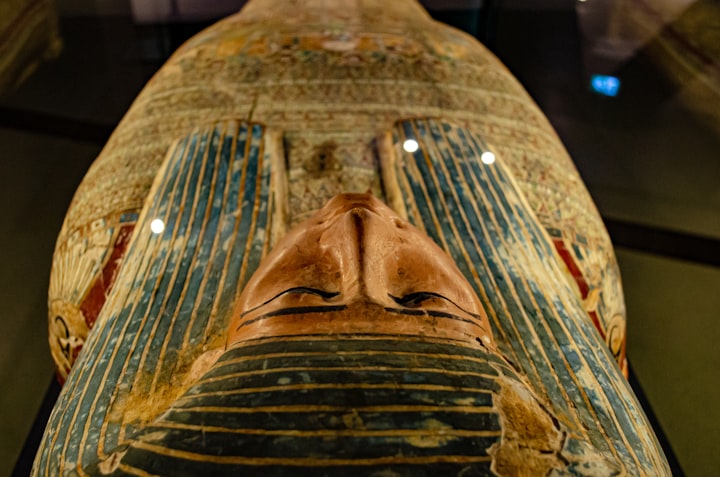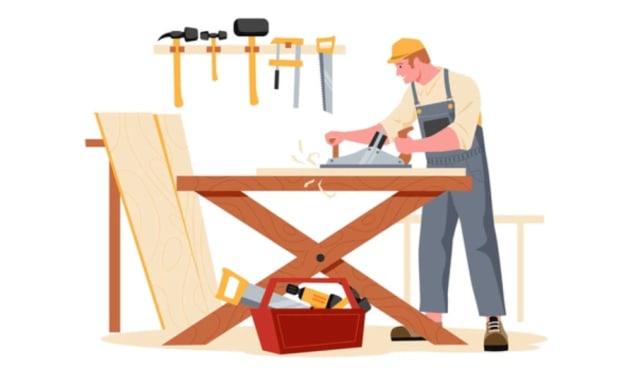Content warning
This story may contain sensitive material or discuss topics that some readers may find distressing. Reader discretion is advised. The views and opinions expressed in this story are those of the author and do not necessarily reflect the official policy or position of Vocal.
Intriguing and Disturbing Customs of Ancient Egypt
Revealing the Mysterious Traditions of Ancient Egypt

Ancient Egypt is widely acclaimed for its grandiose pyramids, elaborate hieroglyphs, and enthralling mythology. Although these facets of Egyptian civilization frequently command attention, there also exist peculiar traditions and ceremonies that may seem somber when viewed through the lens of contemporary norms. Within the confines of this article, we shall explore fifteen of the most captivating and occasionally disconcerting customs that were deemed ordinary in ancient Egypt, thereby illuminating their cultural importance.
Animal Cults
The ancient Egyptian society held a great reverence for animals and established cults dedicated to specific creatures believed to embody the qualities of gods and goddesses. This practice provides valuable insights into their religious beliefs and cultural traditions.
The act of sacrificing animals in rituals was a crucial element of these animal cults. The animals were meticulously chosen, raised, adorned, and ritually purified before being sacrificed and mummified.
There has been a debate regarding cannibalistic practices in ancient Egypt, as some evidence suggests their existence. However, it remains uncertain whether these practices were isolated incidents or part of broader traditions. Most scholars interpret such texts metaphorically.
Funerary Texts
The concept of the afterlife held great significance within the ancient Egyptian civilization, and funerary texts played a pivotal role in adequately preparing the deceased for their journey into the realm beyond. These texts served as a source of guidance and safeguarding within the intricate domain of the afterlife.
In the context of ancient Egypt, it was not uncommon for incestuous marriages to occur, particularly between pharaohs and their siblings. This practice served both political and religious objectives, as it ensured the preservation of divine bloodlines and the establishment of stable power structures.
Mummification
The process of mummification was a multifaceted and arduous undertaking that was thought to facilitate the transition of the deceased into the afterlife. This involved the extraction of internal organs, desiccation of the body, and envelopment in linen bandages.
The question of the prevalence of human sacrifices in ancient Egypt is a subject of scholarly discourse. While indications from the early dynastic era imply the existence of such rituals, subsequent texts are thought to depict figurative rather than actual sacrifices.
Ancient Egyptian Medicine
Ancient Egyptian medicine encompassed a fusion of scientific knowledge, magical practices, and religious beliefs. In their healing practices, practitioners employed human body parts, attributing them with unique qualities capable of transmitting healing properties.
The Nile River held immense importance in ancient Egypt, serving as the very essence of life. It provided fertile soil, facilitated transportation, and held great spiritual significance. The annual floods of the Nile enabled advanced agricultural practices, leading to a prosperous civilization.
Dental care held a prominent place in ancient Egyptian society, as they possessed a sophisticated understanding of oral hygiene. Their diet, rich in carbohydrates, often resulted in dental issues. However, they employed various remedies, such as tooth cleaning with Natron, to address these concerns.
Ancestor Veneration
Paying tribute to the deceased held great significance in ancient Egyptian society. Rituals, offerings, and memorial ceremonies were conducted to maintain a harmonious relationship between the living and the departed, ensuring a comfortable afterlife.
Dwarfs held a distinctive and esteemed position within the ancient Egyptian society. They frequently held significant positions in royal courts and were highly esteemed for their abilities and talents.
Magic played a substantial role in the daily life of ancient Egyptians, and amulets were believed to possess magical energy that provided protection and empowerment. These amulets were worn or placed in burials to exert influence over both the physical and spiritual realms.
The customs and practices of ancient Egypt, though they may appear unconventional or disconcerting to contemporary sensibilities, were firmly entrenched in the culture, beliefs, and values of this extraordinary civilization. Delving into these customs yields valuable perspectives on the intricate fabric of life in ancient Egypt.
About the Creator
Enjoyed the story? Support the Creator.
Subscribe for free to receive all their stories in your feed. You could also pledge your support or give them a one-off tip, letting them know you appreciate their work.





Comments (1)
Great work! Terrific job! Egypt is awesome!